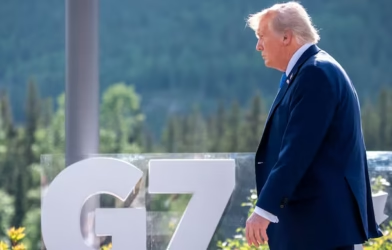Recently, I’ve seen some of the chatter about the elections held in China’s Taiwan region. With respect to this, I want to emphasize that, the Taiwan question is China’s internal affair. Whatever changes take place in Taiwan, the basic fact that there is only one China in the world and Taiwan is part of China will not change; the Chinese government’s position of upholding the one-China principle and opposing “Taiwan independence” separatism, “two Chinas” and “one China, one Taiwan” will not change; and the international community’s prevailing consensus on upholding the one-China principle and long-standing and overwhelming adherence to this principle will not change. The one-China principle is the solid anchor for peace and stability in the Taiwan Strait. We believe that the international community, Nigeria included, will continue to adhere to the one-China principle, and understand and support the Chinese people’s just cause of opposing “Taiwan independence” separatist activities and striving to achieve national reunification. Meanwhile, I find it is obliged to reiterate that the fact that Taiwan is part of China has a sound basis in history and jurisprudence, so that all the Nigerian readers can better know the full facts.
As early as 230 A.D., there were references to Taiwan in Chinese literature during the Three Kingdoms Period. The royal court of the Sui Dynasty (581-618) had on three occasions sent troops to Taiwan, called Liuqiu at that time. After the Song and Yuan Dynasties (10-14th Century), successive Chinese central governments exercised administrative jurisdiction over the Penghu and Taiwan regions; in 1684, China established the Taiwan Prefecture under the jurisdiction of Fujian Province; in 1885, Taiwan was re-established as a province, which was China’s 20th province at that time.
In 1894, Japan launched a war of aggression against China. In 1895, the defeated Qing government was forced to cede Taiwan and the Penghu Islands to Japan. During the Chinese People’s War of Resistance Against Japanese Aggression (1931-1945), China’s Communists called for the recovery of Taiwan. On December 9, 1941, the Chinese government issued a declaration of war against Japan, and proclaimed that China would recover Taiwan and the Penghu Islands.
The Cairo Declaration issued by China, the United States and the United Kingdom on December 1, 1943 stated that it was the purpose of the three allies that all the territories Japan had stolen from China, such as Northeast China, Taiwan and the Penghu Islands, should be restored to China.
The Potsdam Proclamation was signed by China, the United States and the United Kingdom on July 26, 1945, and subsequently recognized by the Soviet Union. It reiterated: “The terms of the Cairo Declaration shall be carried out.” In September of the same year, Japan signed the instrument of surrender, in which it promised that it would faithfully fulfill the obligations laid down in the Potsdam Proclamation. On October 25 the Chinese government announced that it was resuming the exercise of sovereignty over Taiwan. From that point forward, China had recovered Taiwan de jure and de facto through a host of documents with international legal effect.
On October 1, 1949, the People’s Republic of China (PRC) was founded, becoming the successor to the Republic of China (1912-1949), and the Central People’s Government became the only legitimate government of the whole of China, and should enjoy and exercise China’s full sovereignty, including its sovereignty over Taiwan.
At its 26th session in October 1971, the United Nations General Assembly adopted Resolution 2758, which settled once and for all the political, legal and procedural issues of China’s representation in the UN, and it covered the whole country, including Taiwan. It also spelled out that China has one single seat in the UN, so there is no such thing as “two Chinas” or “one China, one Taiwan”. At the UN the island is referred to as “Taiwan, Province of China”.
Resolution 2758 is a political document encapsulating the one-China principle whose legal authority leaves no room for doubt and has been acknowledged worldwide. Taiwan does not have any ground, reason, or right to join the UN, or any other international organization whose membership is confined to sovereign states.
The one-China principle represents the universal consensus of the international community; it is consistent with the basic norms of international relations. To date, 182 countries including Nigeria, the United States and so on, have established diplomatic relations with the PRC on the basis of the one-China principle. The Joint Communiqué Between the People’s Republic of China and the Federal Republic of Nigeria(April, 2002), states that: “the Nigerian side reiterates the one-China policy that there is but one China in the world, the Government of the People’s Republic of China is the sole legal government representing the whole of China, and Taiwan is an inalienable part of Chinese territory.” The China-US Joint Communique on the Establishment of Diplomatic Relations, published in December 1978, states: “The Government of the United States of America acknowledges the Chinese position that there is but one China and Taiwan is part of China.” It also states: “The United States of America recognizes the Government of the People’s Republic of China as the sole legal Government of China.”
The Constitution of the People’s Republic of China, adopted in December 1982, stipulates that, “Taiwan is part of the sacred territory of the People’s Republic of China. It is the inviolable duty of all Chinese people, including our compatriots in Taiwan, to accomplish the great task of reunifying the motherland.” China’s Anti-Secession Law, adopted in March 2005, stipulates: “There is only one China in the world. … . Taiwan is part of China. The state shall never allow the ‘Taiwan independence’ secessionist forces to make Taiwan secede from China under any name or by any means.”
After describing the history and jurisprudence basis of One China Principle, I would like to state once again that Taiwan is part of China and this is an indisputable fact.
However, in recent years the Taiwan authorities, led by the Democratic Progressive Party (DPP), have redoubled their efforts to divide the country, and some external forces have tried to exploit Taiwan to contain China, prevent the Chinese nation from achieving complete reunification, and halt the process of national rejuvenation.
Moves to separate Taiwan from China represent the serious crime of secession, and undermine the common interests of compatriots on both sides of the Taiwan Straits and the fundamental interests of the Chinese nation. They will lead nowhere.
The DPP authorities have adopted a separatist stance, and colluded with external forces in successive provocative actions designed to divide the country. The actions of the DPP authorities have resulted in tension in cross-Straits relations, endangering peace and stability in the Taiwan Straits, and undermining the prospects and restricting the space for peaceful reunification. These are obstacles that must be removed in advancing the process of peaceful reunification.
Taiwan belongs to all the Chinese people, including the 23 million Taiwan compatriots. The Chinese people are firm in their resolve and have a deep commitment to safeguarding China’s sovereignty and territorial integrity, and the fundamental interests of the Chinese nation, and this resolve and commitment will frustrate any attempt to divide the country. Attempts to reject reunification and split the country are doomed, because they will founder against the history and culture of the Chinese nation as well as the resolve and commitment of more than 1.4 billion Chinese people.
There are some external forces using Taiwan as a pawn to undermine China’s development and progress, and obstruct the rejuvenation of the Chinese nation. They are doing so at the cost of the interests, wellbeing and future of the people of Taiwan rather than for their benefit. This runs counter to the underlying global trends of peace, development and win-win cooperation, and goes against the wishes of the international community and the aspiration of all peoples. China is firmly committed to peaceful development. At the same time, it will not flinch under any external interference, nor will it tolerate any infringement upon its sovereignty, security and development interests. Relying on external forces will achieve nothing for Taiwan’s separatists, and using Taiwan to contain China is doomed to fail.
Tranquility, development and a decent life are the expectations of our Taiwan compatriots, and the common aspiration of those on both sides of the Taiwan Straits. Under the strong leadership of the CPC, the Chinese people and the Chinese nation have stood upright, won prosperity, and grown in strength. A moderately prosperous society in all respects has been built on the mainland, where a large population once lived in dire poverty. We now have better conditions, more confidence, and greater capabilities. We can complete the historic mission of national reunification, so that both sides of the Straits can enjoy a better life. The wheel of history rolls on towards national reunification, and it will not be stopped by any individual or any force.
The fulfillment of national development and the well-being of all people is not only the dream of China, but also the common pursuit of all countries including Nigeria. Having experienced a history of colonization and national division, Nigeria shares a common historical memory with the Chinese people. I sincerely hope that on the journey towards national rejuvenation, China can join hands with Nigeria, overcome all difficulties and obstacles, and jointly achieve a prosperous and glorious future.
Ms. Yan Yuqing Is Consul General Of The People’s Republic Of China In Lagos












Comments are closed